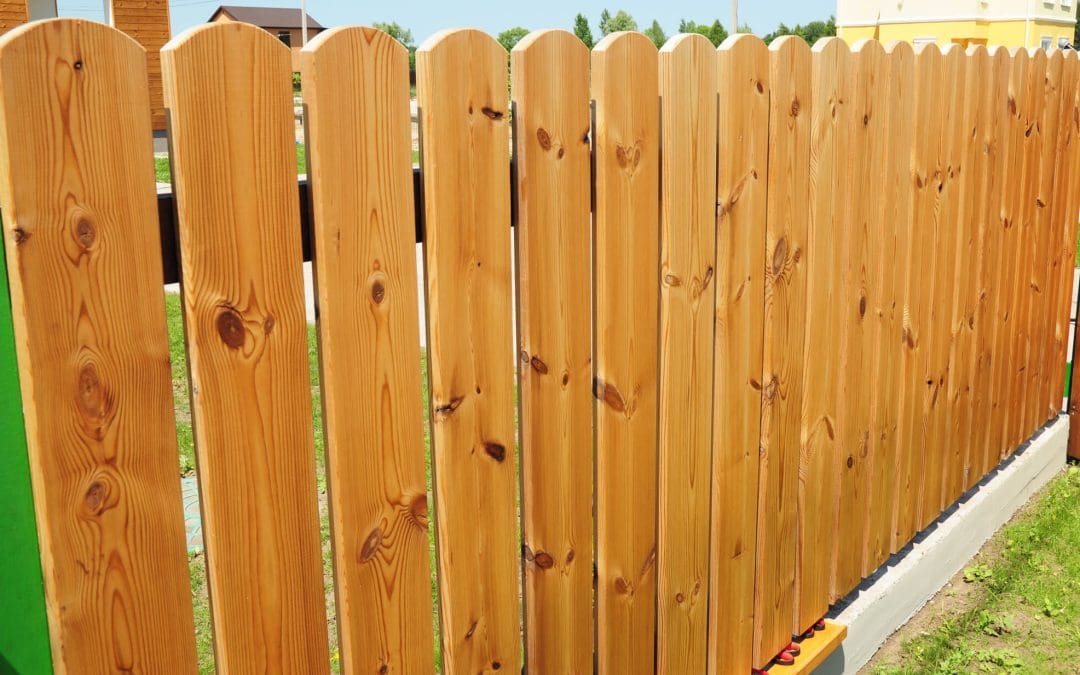When considering fencing materials for your home, the decision is about more than just creating a barrier. Fences play a role in security, privacy, aesthetics, and property value. With a range of fencing materials available, each option offers its unique blend of durability, maintenance needs, and cost. Selecting the right material for your property involves balancing style with practicality. Here’s a detailed look at some of the most popular fencing materials and what you need to know about them.
Wood Fencing: Classic Appeal and Versatility
Wood is one of the most common and versatile fencing materials, known for its natural beauty and timeless appeal. Homeowners often choose wood for its warm, rustic look, which can complement various architectural styles. In terms of customization, wood offers plenty of flexibility. You can paint or stain it to match your home’s color scheme, and it can be shaped into different styles, such as picket, lattice, or horizontal plank designs.
However, wood fencing requires regular maintenance to keep it in good condition. Over time, it can be susceptible to rot, insect damage, and weathering. To maximize its lifespan, wood fences need to be treated, sealed, and occasionally repaired. If you’re considering wood, cedar, and redwood are popular choices due to their natural resistance to decay and pests.
Composite Fencing Materials: A Blend of Beauty and Strength
Composite fencing is an increasingly popular option. It is made from a mixture of wood fibers and recycled plastic. Composite offers the beauty of wood combined with vinyl’s durability and low-maintenance features. Composite fences are highly resistant to weather, insects, and decay and require little more than occasional cleaning.
Composite is ideal for homeowners who want the look of wood without extensive maintenance. Composite fences can come in various colors and styles, offering versatility in design. They tend to be more expensive than wood and vinyl, making them a premium option for those willing to invest in a long-lasting solution.
Bamboo Fencing: Eco-Friendly and Unique
Bamboo fencing is a great choice for those interested in a sustainable and eco-friendly option. Bamboo grows quickly and regenerates, making it a renewable resource. Its unique, exotic look creates a striking feature in a yard or garden, and it’s especially popular in warmer climates.
While bamboo is quite durable, it’s not as strong as wood, vinyl, or metal. It’s also susceptible to rot in overly wet environments, so proper sealing and treatment are essential if you live in a rainy area. Bamboo fencing is a fantastic option for those seeking an environmentally conscious choice with a distinctive aesthetic.
Fencing plays an important role in your property’s overall function and appearance, and choosing the right material makes a significant difference. From the classic charm of wood to the low-maintenance appeal of vinyl or the strength of metal, each fencing material has its benefits and drawbacks. Carefully assess your needs in terms of privacy, security, and aesthetics, as well as your budget and maintenance preferences, to find the fencing material that suits your home best.
FAQs on Fencing Materials
Can I install a fence myself, or should I hire a professional?
Installing a fence yourself can save money, but it’s important to have the right tools and knowledge for the job. Vinyl, wood, and chain link fences are relatively DIY-friendly, though more complex materials like stone, brick, or wrought iron may require professional installation due to the skill and precision involved.
Do composite fences fade over time?
Composite fences are designed to be fade-resistant, but like any outdoor material exposed to sunlight and weather, they may experience slight fading over time. Higher-end composite fences often come with UV protection that helps them maintain their color longer than wood fences, which need to be stained or painted regularly.
What fencing material is best for a windy climate?
For homes prone to high winds, metal fencing—particularly aluminum or chain link—is a durable option that can withstand strong gusts without damage. Vinyl fencing can also hold up well in the wind, but you’ll need to make sure it’s installed with reinforced posts for added stability.
How can I make a chain link fence more private?
Chain link fences can be made more private by adding privacy slats, which are available in various colors and materials. You can also plant fast-growing vines or hedges along the fence line to create a natural privacy screen that blends with your landscaping.
KeysInspector offers home inspections to homebuyers and sellers in southern Florida. Contact us to schedule an appointment for our services.

